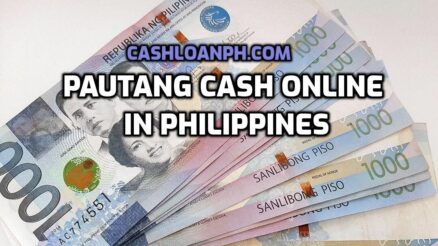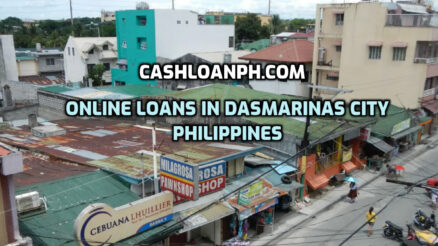Online lending has taken center stage in the Philippines’ evolving financial landscape, offering quick cash disbursement and minimal paperwork – appealing features for many Filipinos facing urgent financial needs. However, this rapid shift toward digital borrowing has also opened the floodgates to unregulated and abusive practices. From hidden fees to aggressive debt collection and data privacy violations, many borrowers have found themselves caught in the traps of illegitimate online loan apps.
Against this backdrop, a promising alternative has emerged: BSP-licensed digital banks. As purely online financial institutions governed by the same rigorous rules as traditional banks, digital banks offer the speed of fintech with the trust of regulation. But are they really safer? And what do they offer that sets them apart?
This article explores the growing role of legitimate digital banks in the Philippines, their lending products, key differences from online loan apps, and why they may represent a more secure and sustainable option for borrowers in 2026 and beyond.
Digital Banking in the Philippines: A Game-Changer in Financial Access
Digital banks are financial institutions that operate entirely online – no physical branches, no long queues. From account opening to loan disbursement, every transaction is done through a mobile app or website. This model lowers operational costs and allows them to reach a broader segment of the population, including those underserved by traditional banks.
The Bangko Sentral ng Pilipinas (BSP) began issuing licenses to digital banks in 2021, with the aim of promoting financial inclusion and encouraging innovation in the sector. A temporary moratorium was imposed in 2022 to study the impact, but by 2024, the BSP lifted the freeze to support a controlled but progressive expansion of the digital banking ecosystem.
Primary goals of BSP’s digital banking framework include:
- Expanding financial inclusion: Serving the unbanked and underbanked, especially in rural areas.
- Enhancing transparency: Requiring clear disclosure of fees, interest rates, and loan terms.
- Reducing lending abuses: Ensuring all entities follow fair lending practices under strict oversight.
- Driving innovation: Encouraging competition and digital transformation across the financial sector.
BSP-Licensed Digital Banks in the Philippines (As of 2026):
- UnionDigital Bank – a subsidiary of UnionBank, focused on digital financial services.
- Tonik Digital Bank – Southeast Asia’s first neobank offering competitive loan and deposit products.
- CIMB Bank Philippines – digital-first, offering personal loans, savings, and investment products.
- GoTyme Bank – combines mobile banking with physical kiosks in partner retail stores.
- Maya Bank – part of the Maya ecosystem (formerly PayMaya), offering loans, savings, and more.
- UNO Digital Bank – provides a wide range of digital banking products for personal and business use.
Comparing Digital Banks, Online Lending Apps, and Traditional Banks
Understanding the core differences between these financial providers is essential when deciding where to borrow money. Here’s a comparison based on accessibility, regulation, interest rates, and consumer protection:
🔵 Traditional Banks:
- Pros: Trusted brands, strong regulatory oversight, diversified financial services.
- Cons: Slower approval times, paperwork-heavy, limited accessibility for those without formal income or credit history.
🟡 Online Lending Apps (SEC-Regulated):
- Pros: Fast approval, accessible even with poor or no credit history, 24/7 application availability.
- Cons: Higher interest rates (despite the interest cap), inconsistent practices, and limited consumer protection – especially from rogue or unregistered apps.
🟢 Legitimate Digital Banks:
- Pros:
- Fully regulated by the BSP, with strong enforcement of consumer protection laws.
- 100% online services: no branches, no queues.
- Often lower interest rates compared to most online loan apps.
- Provide savings, payments, investments, and loans in one platform.
- Transparent fees and terms displayed clearly in mobile apps.
- Cons:
- May have slightly stricter eligibility criteria compared to the most lenient loan apps.
- All services are digital – no physical interaction, which might be challenging for non-tech-savvy users.
What Lending Services Do Digital Banks Offer?
Digital banks in the Philippines now offer a wide range of credit solutions catering to individuals and small businesses alike. Many utilize AI and alternative credit scoring models to assess borrower risk, making loans more accessible even for those with limited credit histories.
Common loan products from digital banks include:
- Personal Loans: Unsecured, multipurpose loans with flexible terms and competitive rates.
- Salary Loans / Cash Advances: Short-term credit designed to bridge income gaps.
- MSME Loans: Funding options for micro, small, and medium enterprises to support operations or expansion.
- Buy Now, Pay Later (BNPL): Installment payment options for online and offline purchases.
- Revolving Credit Lines: Flexible borrowing with interest charged only on the amount used.
These services are typically accessible through mobile apps, with quick pre-qualification, digital KYC (Know Your Customer) processes, and near-instant loan approvals for qualified users.
Why Digital Banks Offer a Safer Lending Experience
What truly sets digital banks apart is their robust regulatory foundation and adherence to consumer protection laws.
✅ Regulation by the BSP
Digital banks operate under the direct supervision of the BSP, which enforces strict guidelines on:
- Capital adequacy
- Risk management
- Anti-money laundering (AML)
- Consumer transparency and data privacy
✅ Coverage by the PDIC
Deposits in digital banks are insured up to ₱500,000 per depositor through the Philippine Deposit Insurance Corporation (PDIC), a safeguard that online lending apps can’t offer.
✅ Compliance with the FPSCPA (RA 11765)
The Financial Products and Services Consumer Protection Act mandates:
- Fair treatment of borrowers
- Clear disclosure of all fees and interest rates (Effective Interest Rate or EIR)
- Stronger protection of borrower data
- Legal recourse through the BSP’s Consumer Protection and Market Conduct Office
✅ Data Privacy and Security
Digital banks follow higher security standards compared to online lending apps, including:
- End-to-end encryption
- Multi-factor authentication
- Advanced fraud detection systems
- Strict controls over access to user data
✅ Transparent and Ethical Practices
Borrowers are provided with all the necessary information upfront, including:
- Total repayment amount
- Repayment schedule
- Interest computation method
- All fees and charges
Most digital bank apps also include loan calculators and disclosures to help borrowers make informed choices.
How to Apply for a Loan Through a Digital Bank
Engaging with a digital bank is simple, but it’s important to follow best practices to ensure your safety and success:
📌 Step-by-Step Guide:
- Check BSP Licensing: Only choose digital banks listed on the BSP’s official website.
- Download the Official App: Avoid third-party sources. Use Google Play or Apple App Store.
- Register and Verify Your Identity: Prepare a valid ID and take a selfie for KYC verification.
- Review Loan Options: Browse through available personal loans or credit lines within the app.
- Understand the Terms: Review the interest rates, repayment period, and applicable fees.
- Apply and Wait for Approval: Many digital banks provide near-instant decisions.
- Receive Funds Digitally: Loan proceeds are disbursed directly to your account within minutes or hours.
Final Thoughts: A New Era for Safe Digital Borrowing
The expansion of legitimate digital banks in the Philippines marks a significant shift toward safer, more responsible borrowing options. These institutions combine the convenience of fintech with the regulatory integrity of traditional banking – offering borrowers the best of both worlds.
While some online loan apps still dominate in terms of accessibility and speed, they often come with hidden risks. Digital banks, by contrast, are grounded in strong consumer protection, transparent practices, and strict regulatory oversight by the BSP.
For Filipinos seeking fast yet secure access to credit, digital banks are becoming an increasingly reliable option. As the market matures, choosing to borrow from a BSP-licensed digital bank could mean fewer risks, better terms, and more peace of mind – essential in an era where financial safety is just as important as speed.




